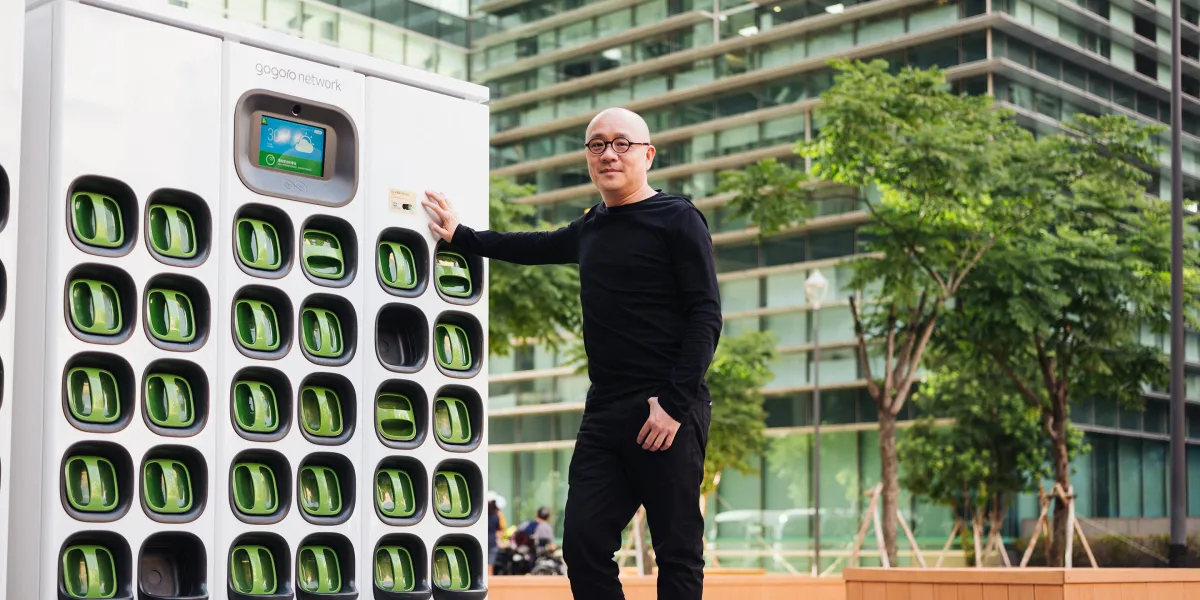Gogoro, a local electric vehicle (EV) startup founded by Horace Luke and Matt Taylor over a decade ago, is responsible for the charging stations in Taipei. The company played a pivotal role in introducing the battery-swapping model in Taiwan, with over 80% of electric scooter riders utilizing the Gogoro network. Taiwan has around 14.5 million scooters on its roads, and Gogoro estimates that approximately 9% of these are electric.
Luke, serving as Gogoro’s CEO, emphasizes the unique advantage of battery-swapping over traditional charging, particularly in situations demanding quick deployment with minimal downtime. He highlights examples like the Taipei police fleet, for whom Gogoro exclusively provides electric scooters, citing the impracticality of waiting for charging during emergencies.
Beyond emergency services, Gogoro has forged partnerships with other entities, such as a recent collaboration with food delivery service Uber Eats. Luke points out the time constraints faced by delivery drivers, making battery swapping, which the company handles at a rate of about 450,000 swaps per day, a more efficient solution.
Gogoro’s ability to monitor the health of each battery is another advantage, allowing for the optimization of their lifespan. Batteries that are no longer suitable for two-wheelers can find a second life powering parking meters or traffic lights. The company claims to power close to 1,000 parking meters and provide backup electricity for half of Taipei’s major intersections.
Horace Luke’s career trajectory, including roles at Nike, Microsoft, and HTC, led him to establish Gogoro. Turning 40 marked a pivotal moment for Luke, prompting him to position Gogoro as more than just a scooter company. His vision is to sell the battery-swapping network, encouraging other EV companies to adopt Gogoro’s system. The company has successfully sold its technology to scooter brands like Yamaha, Aeon, and Suzuki Taiwan, promoting an “Android on wheels” concept that allows other brands to build on top of Gogoro’s battery system.
Luke envisions an open ecosystem, contrasting it with closed alternatives, and believes that more brands adopting the battery-swapping system will enhance its effectiveness. Drawing parallels with Tesla’s Supercharger network, he sees potential for Gogoro to dominate the battery-swapping infrastructure globally.
While some scooter companies, like Bird, opted for the charging route and faced challenges leading to bankruptcy, Gogoro’s focus on battery swapping appears strategically sound. If Gogoro can establish dominance in battery-swapping infrastructure, it may replicate the success of Tesla, which has allowed other car brands to tap into its Supercharger network, with the Biden administration endorsing Tesla’s chargers as the standard for all U.S. EVs.
Going Global
Horace Luke, Gogoro’s CEO, is now eyeing global expansion for the company’s network. Gogoro already operates in over a dozen cities in South Korea, collaborating with DHL and food delivery providers. The startup has also recently announced its entry into markets in Singapore, the Philippines, and India.
However, Gogoro faces a challenge inherent in its model, akin to a chicken-and-egg dilemma, which may complicate its global expansion. The most tangible aspect of the company’s battery network lies in its scooters. Higher scooter sales generate more service revenue, enabling Gogoro to expand its battery swapping station network. Yet, potential customers require a certain level of infrastructure to consider purchasing a Gogoro scooter in the first place. This challenge mirrors the broader concern within the sector, where the lack of charging stations discourages customers from adopting battery electric vehicles.
Gogoro made its debut on the Nasdaq in April 2022 through a merger with a special purpose acquisition company. However, the company’s shares have experienced a 78% decline since its listing. Despite being a tech startup, Gogoro has not yet turned an annual profit. While battery-swapping revenue for the quarter ending on September 30 increased by 10% year on year, the company faced a 19% slump in hardware sales during the same period. Gogoro attributes this decline to intensified competition from traditional scooters, with manufacturers offering substantial discounts.
Despite these challenges, Horace Luke remains confident that the extensive decade-long refinement of Gogoro’s network in Taiwan, catering to the demands of the island’s discerning customers, positions the company to successfully enter global markets. Luke likens the years spent fine-tuning Gogoro’s network to accumulating the necessary tools, know-how, and systems, describing the current period as the company’s launching pad for global expansion.



